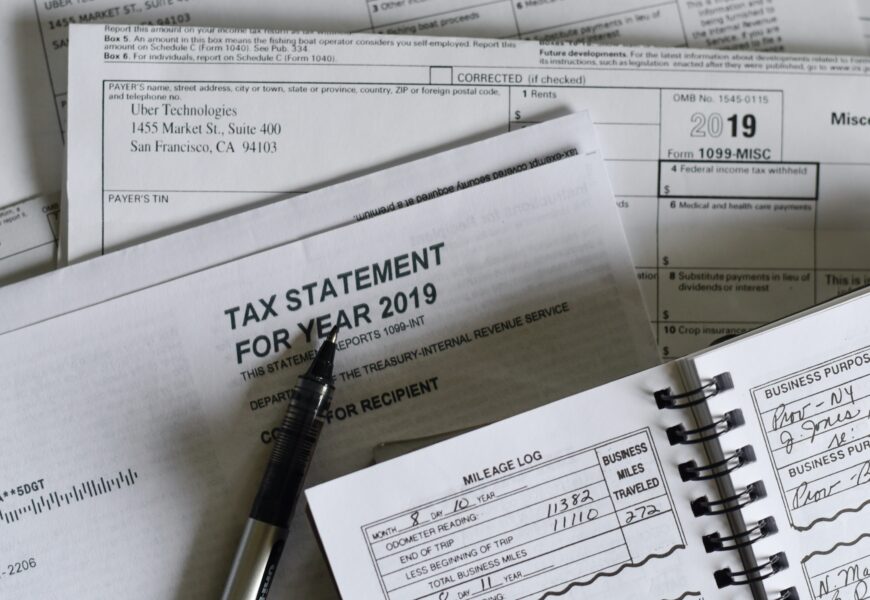Photo Courtesy of Unsplash.
On Christmas Day, 2017, children weren’t the only ones reveling at the gifts they had just received. CEOs of huge corporations and those in the highest tax brackets were celebrating too. Just five days earlier, President Trump had signed into law the Tax Cuts and Jobs Act of 2017 (The TCJA). The TCJA was the largest overhaul of America’s tax code since the days of Reagan and echoed his obsession with cutting taxes for the rich. The Act heavily favors those in the highest tax brackets. It is saturated with corporate tax breaks and loopholes that ultimately benefit the richest people in this country. While the average American does receive some benefits, they are fleeting and are heavily outweighed by the avalanche of economic consequences the act will have for the country in years to come. In an effort to prioritize America’s middle class, and demand that corporations and wealthy Americans pay their fair share, President-elect Joe Biden should repeal the TCJA.
To understand how this act ended up so lopsided in favor of the wealthy, it is important to understand the process the TCJA went through to be passed. Senate Republicans went to great lengths to keep this colossal revision of the tax code secret from both Democrats and the public. Neither the House nor the Senate versions of the bill received any type of public hearing, and the official version was released just hours before it was voted on. Furthermore, last minute revisions were being added just hours before the final vote. This refusal on the part of Republicans to offer even a shred of transparency or bipartisanship speaks to the legislation’s harmful contents. It is clear that TCJA was not meant to represent the average American, instead it was designed specifically to benefit the ultrarich and the donor class. Don’t take my word for it though. Representatives Chris Collins and Lindsey Graham have both literally admitted to having written these massive changes to the tax code out of pressure from their millionaire donors.
As it turns out, those donors got exactly what they asked for. The main theme across the TCJA is a significant reduction in tax rates. Out of the seven individual tax brackets in the current tax code, five of them saw their rates lowered, from anywhere between 1-4%. In a time of incredible wealth inequality, it might seem like a bad idea to further decrease taxes on the highest tax bracket- but they were, more than 2%. The corporate tax rate was steeply lowered, going from a range of 13-39% to a mere 21%. The results of this tax-slashing will not be pretty in the long run, according to a vast majority of economists. The nonpartisan Congressional Budget Office estimates that as a result of TCJA over the next 10 years, corporations will receive billions in net benefits while trillions will be added to the national debt. Just in 2018, the U.S. Treasury saw a 40% drop in corporate revenue. This means that our government will be even more ill equipped to handle the mounting problems facing our country: lifting up those in poverty, dealing with our woeful education system, handling the effects of climate change or the opioid epidemic…the list goes on.
The TCJA does have some benefits for the average American. As was previously mentioned, tax rates for individuals do decrease, giving people more after-tax income in their pockets. However, unlike the corporate tax cuts, these benefits expire after 2025. Other benefits include an increase to the already-existing tax credit for children and an overhaul to the way that taxes are reported to make them more simple to file. Some might point to the economic upturn we saw in 2018 and vouch for the act’s positive effects. However, economists from the University of Chicago, Princeton, The Economist, and many other organizations unilaterally agree that while the short term effects of cutting taxes provides a small boost in economic growth, the long term consequence will be a massive increase in the national debt. While the TCJA does have some redeemable qualities, I would argue that its effects on income inequality and the national debt will greatly overshadow these benefits.
To say that this act was designed to help our country or the average citizen is laughable. President Trump and Senate Republicans filled their pockets while the country they are supposed to be fighting for was gouged out by their plutocrat friends (or lovers–at this point, I wouldn’t be surprised). The Republican party is the party of economic royalists, and it is foolish to suggest otherwise.•










